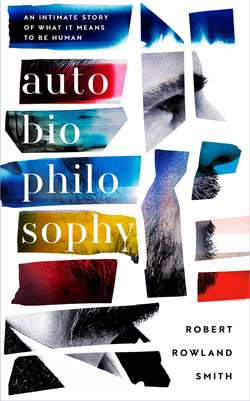Читать книгу AutoBioPhilosophy: An intimate story of what it means to be human - Robert Smith Rowland - Страница 21
Incurable souls
ОглавлениеOver time, Colin’s metaphorical namelessness has become all too real. Now when I visit him, he’s not sure what his own name is, let alone mine. Addressing him in his fleece top, sweat pants and Velcro slippers – he hasn’t worn shoes for fifteen years – I ask, ‘Am I Robert?’ Sometimes he shakes his head. Other times he says yes. Or rather he whispers yes, because that’s the best his un-exercised larynx can do. His mouth hangs open most of the day, revealing the few teeth that are stuck like plugs of dark sap onto his gums. It’s an effort for him to close his mouth in the way that enunciating syllables requires, so the ‘y’ and the ‘s’ at the beginning and end of the word ‘yes’ barely have any definition. The lack of consistency in his replies suggests that he just doesn’t know who I am. He’s guessing. It seems that I, his only son, have become a stranger.
Often he won’t reply at all. But then, language consists of more than words. Whenever I appear, his face lights up. After this initial burst, he will zone out, adrift in some time outside time. But during it, he is stirred. He may not be recognising me as Robert; he may not even be recognising me as his son. But that he is recognising somebody is beyond dispute. Only recognition could trigger such elation. I smile back and, for those first few seconds, we are communicating.
We are communicating, but as to what underpins the communication, I cannot say. It’s not just he who is unsure about me. To be frank, even though I know rationally that he is my father, being with him is so strange that I feel it like a vertigo. That’s partly because I’m in a state of protracted shock, both about his disease and about being related to him as its victim. But it is also because that disease has refashioned him to such an extent that I’m not sure who he is either.
If we can communicate despite having no normal basis for it, it’s possible that something else is going on. Not only is the mutual strangeness no bar to communication, it might even be what allows a more immediate form of communication to take place. When two people know each other well, or are each sure of who the other person is, the quality of the communication can actually decrease. How so? The familiarity causes us to rely on our inner picture of that other person, rather than seeing them as they truly are. We become too habituated to properly notice. But, as when a wave recedes and leaves the pebbles on the beach gleaming, when the familiarity recedes and we become strangers once more, we see the other person afresh.
It is more like an encounter between two souls than two selves. Souls don’t need to know in the way that selves do, because in the realm of the soul everything essential gets communicated in advance. When two souls come together they ‘always already’ know each other. That is why, for example, the process of falling in love is instantaneous, and why a new couple will often attest to the uncanny feeling of having known each other before. Their souls arrived at the love-place ahead of their selves.
The key condition for this soul knowledge to occur, therefore, is the dislodging of the mask of the self. In Colin’s case, it was knocked from his face for him. He certainly didn’t ask for it. Like most of us, his preference would surely have been for a life of presence, identity, connection and value, for the embroidery of the self to weave its threads until it had assumed the form and colour that most people are able to enjoy. And yet it’s precisely because his self grew so threadbare that his soul was able to shine through in large smooth patches. Perhaps that’s what’s so jolting about visiting Colin and seeing the other incurables drooling in their food, or hearing the unidentifiable sounds they make echoing down the long, wide parquet corridors. It’s the absence of selves and, in their place, the presence of their naked souls.
